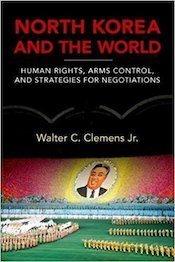
Photo by Adrián Martínez | CC BY 2.0
From the Greeks we get a word for the present United States political system—a kakistocracy: a country ruled by the worst, least qualified, or most unscrupulous citizens. The term blends kakistos, “worst” (the superlative of kakos, “bad”), with kratos, “rule,” and is probably related to the Indo-European word caco, “defecate.” One cognate is cacophony—harsh or bad sound.
In 2016, as in 1876, Americans might share the concern expressed by the poet, professor, and diplomat James Russell Lowell as he contemplated Washington politics: “What fills me with doubt and dismay is the degradation of the moral tone. Is it or is it not a result of Democracy? Is ours a ‘government of the people, by the people, for the people,’ or a Kakistocracy rather, for the benefit of knaves at the cost of fools?”
Several Puritan clergy critical of the Church of England warned in 1641 that when “government of the church is in the hands of bad men, we have kakistocracy.” A 1829 novel by English writer T. L. Peacock described a “kakistocracy that castigates the heinous sins” earlier committed with impunity. In 1838 the U.S. Senator and slavery proponent William Harper compared kakistocracy to anarchy, as in the French Revolution, but said that this seldom occurs, thanks to the “honor” of human nature. Still, a book on Germany in 1879 asserted that its “regime is at once a plutocracy and a kakistocracy.”
The term has been used in Spanish, French, and Russian in recent years. Writing about corruption in the Viktor Yanukovich regime in  Kiev, a writer in Ukraine addressed the “kakistokratiya of the transition period” (Politikantrop May 7, 2010). Of course the epithet can be used by those on the right, the center, or the left. Glenn Beck often disparaged the Obama administration as a kakistocracy.
Kiev, a writer in Ukraine addressed the “kakistokratiya of the transition period” (Politikantrop May 7, 2010). Of course the epithet can be used by those on the right, the center, or the left. Glenn Beck often disparaged the Obama administration as a kakistocracy.
Observers on many sides of the political spectrum worry that the Trump presidency is a kakistocracy. His modus operandi combines many facets of “bad” (kakos)—willful ignorance, indifference to scientific and historical truth, erratic and thoughtless language, improvised decision-making, and a determination to increase the power and wealth of his family, his entourage, and fellow-traveling elites rather than the many. It seems bad also in its willingness to bypass institutional traditions—release of tax returns, disinvestment, avoidance of any potential conflicts of interest, access to the press and press conferences. Narcissism overwhelms prudence as the man uses tax give-aways and Tweets to browbeat entities from Carrier and Boeing to NBC. His loose talk can endanger not just a company’s stock prices but also millions of lives. It has provoked a rise in hate crimes and threats against the union leader who disputed how many jobs were saved at Carrier. He glib talk about Taiwan, Jerusalem, North Korea, and other global issues is unnerving.
Not only has the president elect had no experience in government, but several of his selections for important cabinet posts also have no experience in the job they are to perform. Some have espoused policies shown not to work, such as school vouchers (Education Secretary Betsy DeVos) and tax cuts for billionaires (Treasury Secretary Steven Mnuchin). Secretary of Housing Ben Carson has no relevant experience except to occupy a house. Scott Pruitt, head of the Environmental Protection Agency, denies the global consensus on climate change. The Secretary of Defense, James Mattis, nicknamed “Mad Dog,” is known to seek revenge for Iran’s support of the Hezbollah truck bombing that killed 220 Marines and 21 other soldiers in Lebanon in 1983. The president’s first choice as National Security adviser, Michael T. Flynn, was compelled to step down after twenty-four days on the job for having withheld information about his dealings with Russian officials. Health Secretary Tom Price was forced to resign for his repeated use of charter flights at tax payer expense. Other cabinet officers are accused of similar travel abuses. Meanwhile the president says that oil man Rex Tillerson, his Secretary of State, is wasting his time trying to negotiate with North Korea.
Hubris and self-righteousness, my book on America and the world since 1898 argued, underlay many of the greatest failures in U.S. foreign policy (America and the World, 1898-2025: Achievements, Failures, Alternative Futures [New York: St. Martin’s, 2000]),
Ignorance. Impetuosity. Avarice. Thin skin. No ideas, fixed ideas, and false ideas. What a combination in and around a White House where the president can fire nuclear weapons in less than fifteen minutes and destroy much of civilization in an hour! Once in motion, missiles—unlike promises–cannot be called back.